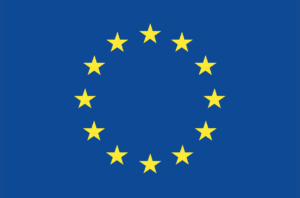Download Proceedings
 Connecting through Educational Technology to Produce Effective Learning Environments
Connecting through Educational Technology to Produce Effective Learning Environments
Technology is with us everywhere which validates the horizontal-holistic approach for imperative questions of the period. For the transforming education landscape, challenges come increasingly from the socio-cultural-economic, structural and policy fields. Education has to be visionary to reach efficiency gains, new sources – and to offer sustainable services, reflecting the complexity of modern societies.
Market realities put similar pressures on the corporate and University worlds. Stakeholders expect academia to respond to needs beyond teaching and research, better promote innovation and the knowledge economy, manage the new student populations. Universities are expected to detect and attract talents, be magnet of inputs from practitioners, resulting cooperative surplus.
Vocationalisation of education also means the emergence of new skill sets. The progress in industrial automation and ICTs opens possibilities for lifelong learning resources, for work based learning and integration of human-machine intelligence models.
Educational technologies are about connections among information, knowledge, action, emotion and value: knowledge construction, learning activities by sharing and thinking, interactivity, aggregative mechanisms, cooperation and integration – to meet the requirements of the knowledge age, to satisfy the needs of social transformation and learning innovation.
New generation of learning technologies and networks are ubiquitous, embedded and mobile which reshape access to and delivery of learning. Cutting edge fields are artificial intelligence, learning analytics, micro-learning, new credentialing, revolution of assessment, massive open online courses (MOOCs), personalized learning, game-based learning, flipped classroom, Digital Makerspaces and alike.
The questions remain: Which one(s) of these will have significant and sustained impact in the future? Can the network society become an enhanced learning society? How can information and communication technology in the age of Industry 4.0 create and enhance synergies between online learning programmes, the increased diversity of stakeholders, the workplace experience, socio-cultural influences and students’ work-life balance?
EDEN is pleased to welcome again at its 2019 Annual Conference the scholars, practitioners, experts from Europe and all around the world in Bruges to discuss the issues of Connecting through Educational Technology.
Major themes of the Conference included:
- Global connections: How to organise online study programmes that enhance the students’ competences, provide connections with international partners and promote virtual mobility?
- Connections with workplace: How can innovative study programmes be developed to involve the workplace impact and experience (virtual dual learning, (distance/digital) internships)?
- Connections with the community: How to organise study programmes that focus on relations of curriculum, delivery and the socio-economic environment?
- Connection with learners: Caring about the work-life balance of the students, attentive to learners’ needs, expectations and the changing behaviour of diverse student populations.Andras Szucs, Secretary General
- Sylke Vandercruysse, VIVES University of Applied Sciences
- Airina Volungeviciene, President, EDE







